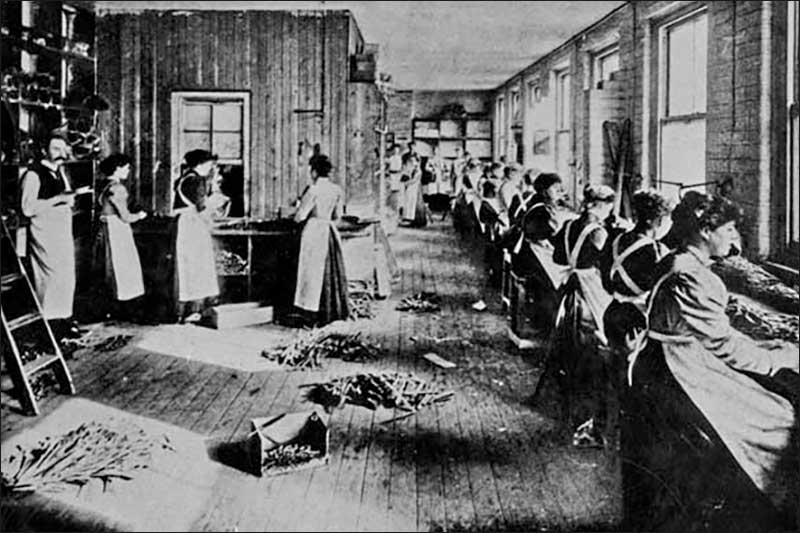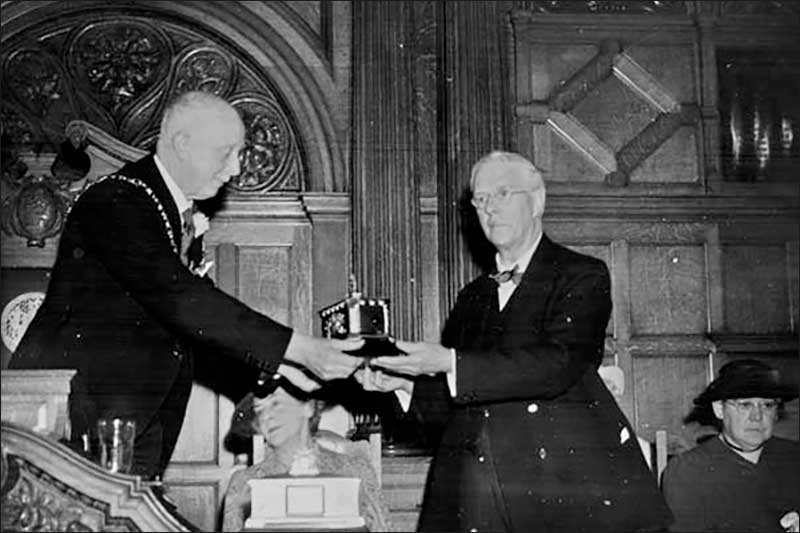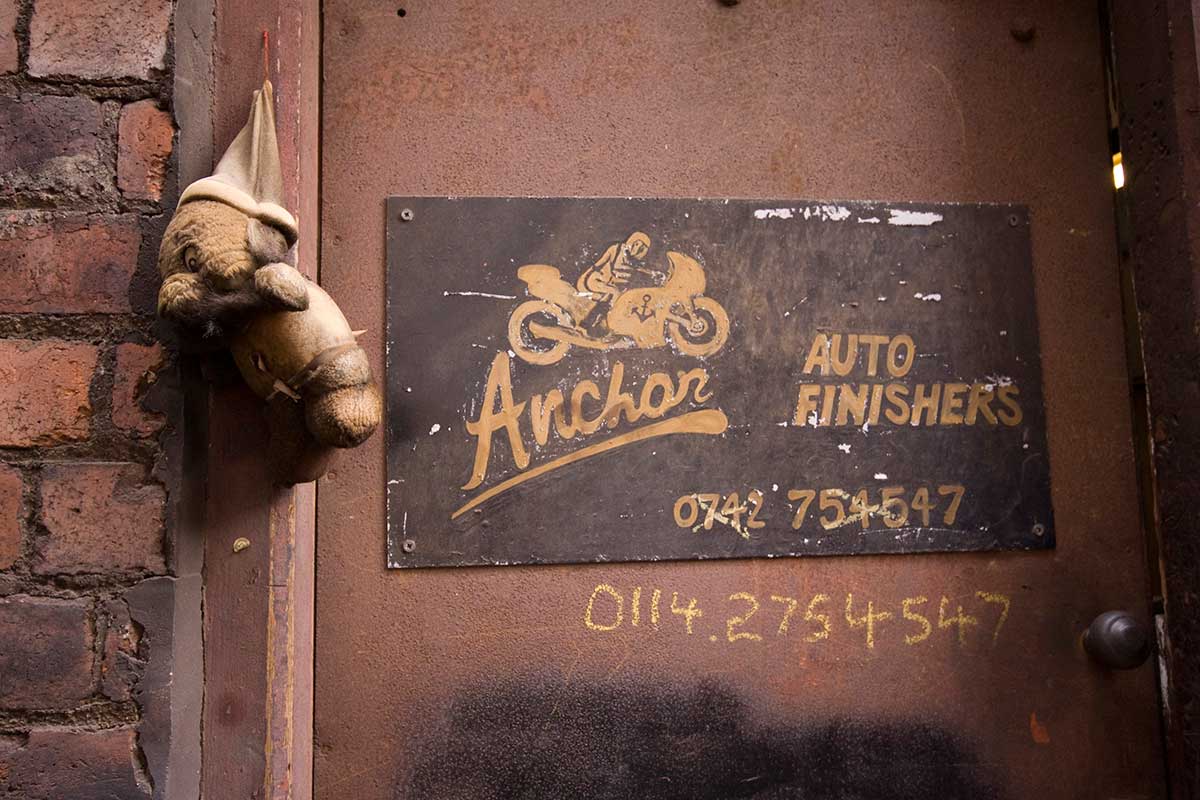Portland Works is situated on Randall Street close to Bramall Lane (“The Blades” as Sheffield United FC is known) at its junction with Hill Street and forms part of an important enclave of 11 surviving nineteenth century industrial buildings. Commissioned by Robert F. Mosley (1841-1921) and designed by J.H. Jenkinson, Architects, planning permission was approved for the building on the 15th of September 1876 and it was built soon after in one phase. R. F. Mosley & Co. Ltd., manufacturer of cutlery and silverware, was the first firm in the world to produce stainless steel cutlery and it continued to operate on the site until the late 1950s.
We understand Mosley brought the Portland name with him from his 188 West St premises and that building was known as Portland Works in 1841, before Mosley had moved in.
In typical style workshops within Portland Works were sublet immediately after construction and by 1879 the building also housed William H. Green (spring knife maker) and George Gill (cutlery manufacturer).
R.F. Mosley & Co.’s Portland Works was described in an 1888 directory of Sheffield’s industries as:
“A well erected premises [that] provides every facility for the class of trade carried on. It comprises offices, handsome showrooms, systematically arranged stockrooms, well equipped packing, cutters, silver and electroplating rooms, forge shops and grinding mills. The different workrooms being provided with all the necessary steam power, machinery and appliances required. Messrs Mosley & Co. manufacture every kind of cutlery and have earned a high character for the quality of their productions.
A valuable feature of their business and one, which has been made a speciality by them, is the manufacture of case goods of an exceedingly artistic and extensive scale. These cases are filled with satin and velvet linings for the reception of cutlery of the best and highly finished kind (mounted in pearl, ivory, silver metal and other choice mountings. A large quantity are always kept in stock and orders, owing to the resources of the firm and great numbers of hands employed, can be executed without delay.
Mr Mosley and Sons are actively engaged in the management of the business and are to be heartily commended for the high position their establishment has attained under their guidance.”
British Industrial Publishing Company, 1888
Over one hundred years later the Pevsner Architectural Guide to Sheffield described the works’ physical features thus:
“On a corner site, the corner of the works is rounded with a two-storey entrance gateway with rusticated pilasters. Elaborate frontage, the works name flanked by panelled pedestals with ball finials. Round headed sash windows to the first floor and sill and lintel bands, that on the first floor cogged and in contrasting cream bricks. Ornamental panels of diagonal brickwork and an octagonal chimney. A three-storey rear range used for grinding has a room with four transverse fireproof bays, suggesting the presence of a central engine house with the position of hearths indicated by ridge stacks. On the ground floor of the [west] workshop range are the best preserved examples of hand forges in the city. These may have been let separately and retain combined stable-type doors and a window under a rolled steel lintel.”
Harman & Minnis, 2004
Thanks to the continuity of a number of successful metal trades businesses operating within the works, including Wigfull Tools, Stuart Mitchell Knives, Shaw Engraving and PML Plating, these details, indeed the entire forge area, continue to be both well used and preserved. The building even retains the original line shafts, which drove R. F. Mosley & Co.’s hammers and drop stamps. However, as you the reader are by now surely aware, the future of Portland Works as a metal trades complex is threatened, due to the fact that its current owners propose to convert the building into residential apartments – a use that will erase all trace of the centuries of industrial heritage embodied in this Grade II* listed building.
Figure 2. Table knife handle boring c.1900, R.F. Mosley Ltd., Portland Works, Randall Street

Figure 3. Bone and sterling silver handled ‘Rusnorstain’ table knives with stainless steel blades, manufactured by Robert F. Mosley Ltd., Portland Works, Sheffield

Figure 4 – Rusnorstain trademark

References:
1) British Industrial Publishing Company 1888The Industries of Sheffield: Business Review British Industrial Publishing Company, Lincoln’s Inn, Birmingham.
2) Harman R & Minnis J 2004Pevsner Architectural Guides: Sheffield Yale University Press, New Haven & London.





